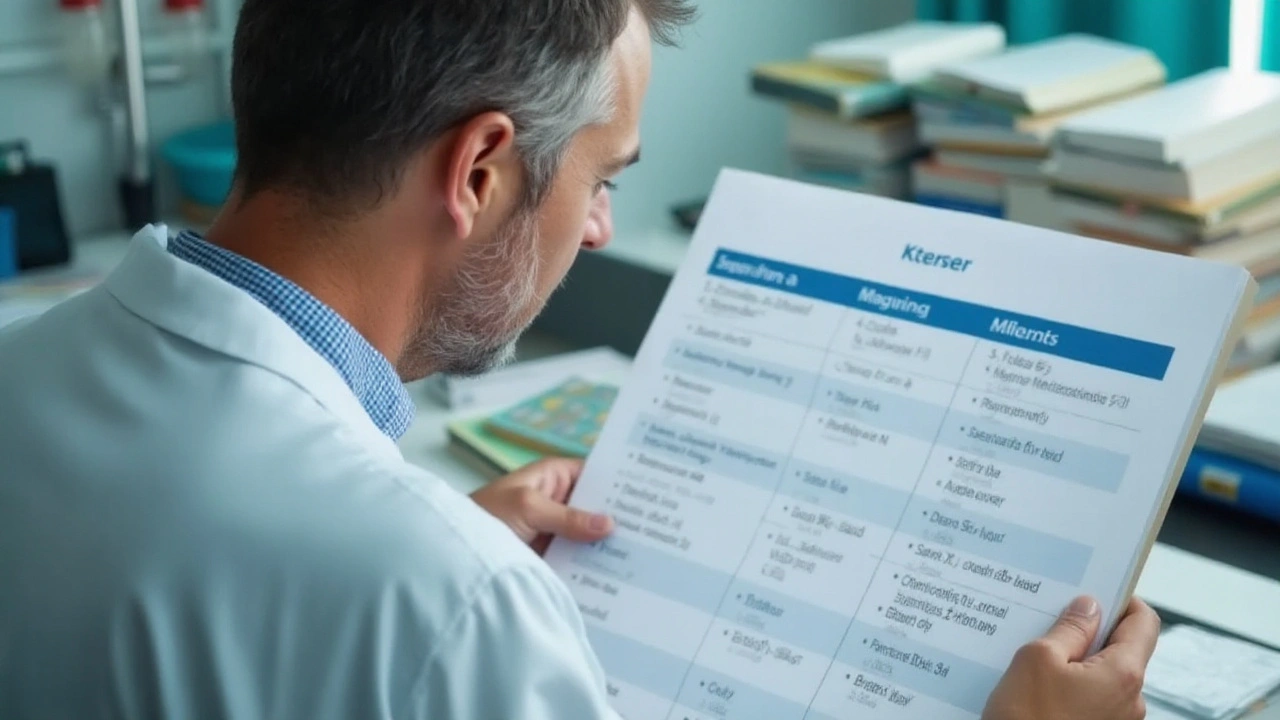Heart Failure Solutions
If you or someone you care about has heart failure, it helps to know clear, usable solutions—what medicines do, simple daily steps, and how to get meds safely. This guide breaks down treatments you’ll actually encounter, what they do, and practical moves to feel more in control.
Key medicines to know
Doctors usually combine drugs to reduce symptoms and prevent hospital visits. You’ll hear names like ACE inhibitors or ARBs (they lower pressure on the heart), beta blockers (slow the heart and improve pump function), MRAs like spironolactone (cut fluid and protect the heart), and the newer ARNI class (commonly Entresto) which can help more than older drugs for many people.
SGLT2 inhibitors—Forxiga (dapagliflozin) is one example—were originally for diabetes but now lower heart failure hospitalizations and are part of many care plans. Diuretics such as Lasix (furosemide) help remove extra fluid quickly so breathing and swelling improve. If you have irregular rhythm or clots, anticoagulants like Eliquis (apixaban) may be prescribed.
Every medicine has pros and cons. Ask your clinician about side effects, how to take them, and what monitoring (blood tests, kidney checks, potassium) you’ll need. Don’t stop medications suddenly—talk to the care team first.
Practical day-to-day steps
Small daily habits matter. Weigh yourself each morning and report a gain of 2–3 pounds in a day or 5 pounds in a week—this often signals fluid build-up. Cut back on salt, stick to fluid limits if advised, and keep active within your abilities. Learn to pace activity and rest to avoid sudden breathlessness.
Know the warning signs: new or worse shortness of breath, swelling in legs or belly, sudden weight gain, chest pain, fainting, or confusion. If these happen, contact your doctor or go to urgent care—don’t wait.
Devices matter too. Some people benefit from implantable devices like ICDs (prevent dangerous rhythms) or CRT (helps the heart pump more efficiently). Your cardiologist will explain if these fit your situation.
Getting meds safely: use verified pharmacies, always keep a current prescription, and check reviews and accreditation before ordering online. Be aware of import rules and prescription limits if buying from abroad, and follow safe ordering practices. If you travel, plan doses and packing—there are tips for traveling on Eliquis and for keeping supplies steady.
Work with your care team. Bring a list of meds to appointments, ask what to expect, and set a simple action plan for rising symptoms. Heart failure can feel overwhelming, but clear steps—proper meds, daily checks, and safe access to prescriptions—make managing it much more manageable.

Exploring Effective Alternatives to Lasix in 2024 for Optimal Health Outcomes
In the vast landscape of prescription medications, finding the right alternative to Lasix can significantly impact patient outcomes. This article delves into seven alternatives, each with unique mechanisms and benefits, from Torsemide's efficiency in heart failure management to Spironolactone's potassium-sparing properties. While presenting their merits, this piece also highlights potential drawbacks, ensuring a comprehensive understanding for those exploring these options. The inclusion of a comparison table aims to aid decision-making in selecting an appropriate treatment.
